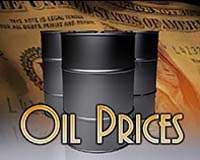 |
Baghdad (UPI) Oct 21, 2009 The government's gamble that the lure of Iraq's oil wealth will persuade major international oil companies to invest billions of dollars in upgrading the country's ramshackle energy on Baghdad's terms seems to be finally paying off. Several weeks before a crucial auction of licenses for some of Iraq's biggest oil fields scheduled for mid-December, Iraqi officials say that several global oil giants have lowered their demands and cut deals with Baghdad. This will likely intensify pressure on other bidders to fall in line with Baghdad's demands if they want to get their hands on Iraq's immense energy riches. These total 115 billion barrels of proven, recoverable oil reserves, the fourth highest after Saudi Arabia, Canada and Iran. But industry analysts say that untapped reserves could double that. Major oil companies were booted out of Iraq in 1972 when the oil industry was nationalized. Now they want to get back in. But the Baghdad government, dependent on oil revenue for its economic survival, wants the companies to invest in excess of $100 billion to upgrade the country's rundown oil sector. For months, the oil companies have refused to meet Baghdad's demands. But Iraqi officials say that a consortium headed by ENI of Italy has now agreed to develop the Zubair oil field for payment of $2 for every barrel it produces rather than the $4.80 it had been demanding. The deal is premised on a projected production rate of 1.25 million barrels a day, according to Oil Minister Hussain al-Shahristani. Zubair, which contains proven reserves of 4.1 billion barrels, currently produces around 230,000 bpd. In Moscow, Russia's largest independent oil producer, LUKoil, has announced it is prepared to operate the giant West Qurna-1 field on Baghdad's terms. That has been a flat $2 for every barrel produced. The consortium headed by LUKoil had been demanding $6.49 per barrel. A rival consortium of Exxon Mobil of the United States and Royal Dutch Shell wanted $4 per barrel produced. But, according to Shahristani, it has said it will settle for $1.90. LUKoil, which was involved in West Qurna during Saddam Hussein's rule, had earlier rejected the Iraqi government's offer during Baghdad's first oil auction in June. It is bidding in a consortium with ConocoPhillips of the United States. "We have informed the Iraqi Oil Ministry that the consortium of LUKoil and ConocoPhillips is prepared to hold direct negotiations on the West Qurna-1 project under the terms announced earlier by the Oil Ministry," LUKoil Chief Executive Vagit Alekperov declared Oct. 8. West Qurna-1 contains an estimated 8.6 barrels of oil and its current output is around 280,000 bpd. The LUKoil consortium's target production level is 1.5 million bpd. Alekperov said LUKoil said it changed its position on West Qurna-1 "following a detailed analysis." He said the company will also participate in the bidding on the West Qurna-2 field, stressing that the infrastructure of the two fields requires a single operator. West Qurna-2's proven recoverable reserves are estimated at 6 billion barrels. LUKoil had signed a contract with Saddam's regime to develop West Qurna, but the deal was frozen in 2002, a year before Saddam was toppled in the U.S.-led invasion. The Iraqi Oil Ministry and LUKoil agreed in 2008 to establish a working group to amend the original West Qurna-2 contract. But it is not clear whether Iraq will allow a single operator to run both fields. Shahristani said that the investment required to upgrade the three fields -- Zubair and the two West Qurnas -- would be $100 billion. The government planned to boost the combined production from them to more than 6 million bpd within six years. The only deal agreed in the June auction was with a consortium led by British oil giant BP, with China's state-owned CNPC as its partner. It agreed to Baghdad's $2 per barrel produced, almost halving its demand for $3.99. It will develop the rich Rumaila field in southern Iraq, which contains an estimated 17.8 billion barrels, over 30 years. Rumaila's current production rate is around 1 million bpd, almost half of Iraq's current output of 2.4 million bpd. BP wants to boost that to 2.85 million. Share This Article With Planet Earth
Related Links Powering The World in the 21st Century at Energy-Daily.com
 Oil think tank warns recovery bears risks
Oil think tank warns recovery bears risksLondon (UPI) Oct 19, 2009 Consumers and producers of oil need to handle the current economic recovery with care to make sure they don't misread signals and trigger a change in the oil market that may jolt the world out of the recuperative mode, London's Center for Global Energy Studies warned Monday. The world economy is coming out of recession, largely due to unprecedented cash injections by governments, but ... read more |
|
| The content herein, unless otherwise known to be public domain, are Copyright 1995-2009 - SpaceDaily. AFP and UPI Wire Stories are copyright Agence France-Presse and United Press International. ESA Portal Reports are copyright European Space Agency. All NASA sourced material is public domain. Additional copyrights may apply in whole or part to other bona fide parties. Advertising does not imply endorsement,agreement or approval of any opinions, statements or information provided by SpaceDaily on any Web page published or hosted by SpaceDaily. Privacy Statement |